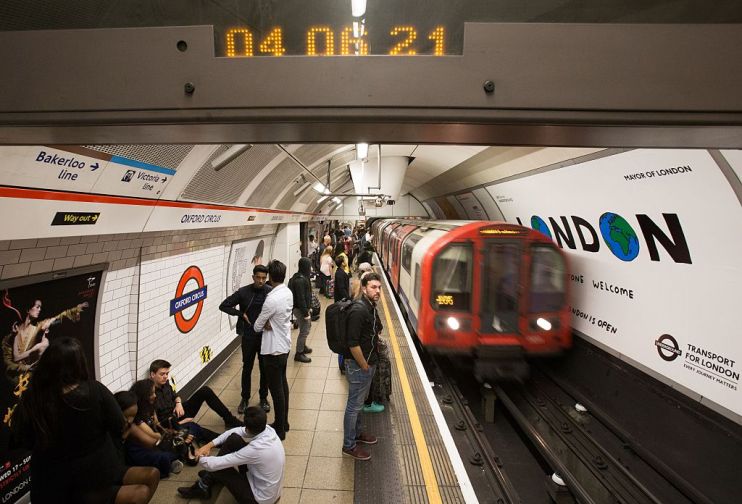Rising costs threaten to scupper 4G Tube rollout plans

Plans to roll out 4G mobile networks on the London Underground are said to be under threat as operators fret over soaring costs.
Transport for London (TfL) has outlined plans to provide 4G access to passengers across the Tube network in 2020 after delaying the process by more than a year.
Read more: London Night Tube crime rates soar in 2018-19
But the latest proposals have sparked fears that mobile providers such as O2, Vodafone and EE will have to pay higher prices to access the network than previously thought, the Sunday Telegraph reported.
The rollout has also been hampered by confusion over a new Home Office-mandated 4G network for the emergency services, which will be installed at the same time.
Sources told the newspaper it was still unclear how transport bosses would divide expenses between commercial operators and the Home Office.
The commercial uncertainties could pose a fresh threat to TfL’s already troubled efforts to launch new telecoms connections.
London has lagged behind other major cities such as New York, Paris, Berlin and Tokyo, which have already brought mobile signal to their underground networks.
But TfL will be hoping issues over the commercial terms do not deter operators from investing.
Transport officials in Toronto have been left red-faced after only one Canadian carrier bought access to its underground mobile network, leaving most residents unable to connect.
A spokesperson for TfL said: “The London Underground network is an incredibly challenging environment in which to deliver technological improvements, but we are on target to deliver mobile connectivity within our stations and tunnels as planned.
“We are currently reviewing submissions from bidders and will provide an update when it is appropriate to do so.”
Under current plans, TfL will launch its 4G network on most of the Jubilee line in March 2020, with further lines to follow in the coming years.
Read more: Tube drivers vow October disruption over noisy trains
The transport body has drawn up a shortlist of potential infrastructure suppliers including Axia SC Consortium, Cellnex and Wireless Infrastructure Group. Whichever firm wins the contract will then sell access to mobile network providers.
Vodafone, EE, O2 and Three have been contacted for comment.
Main image credit: Getty